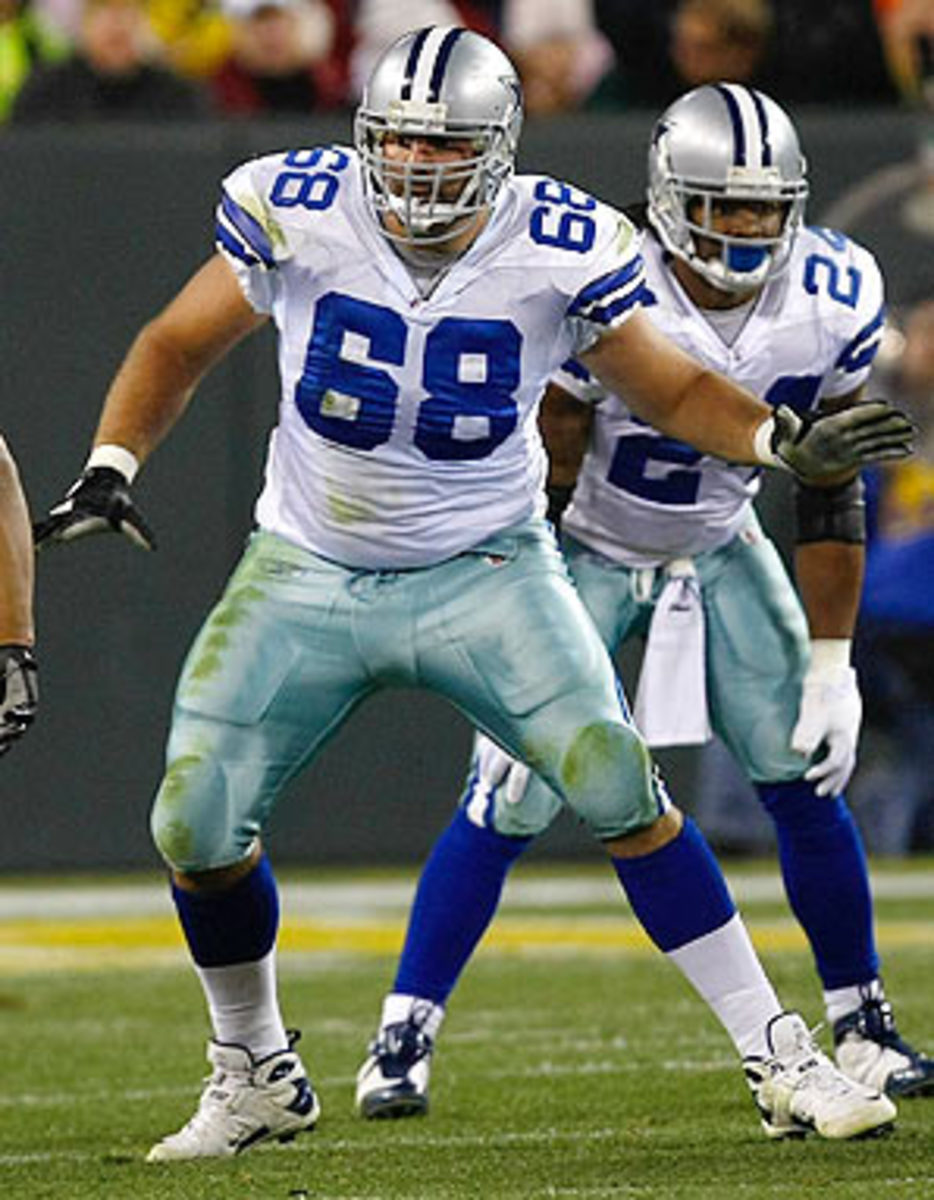Why draft needs can be misleading
Needs. Every NFL team seemingly has them, although some are certainly more pronounced than others. All fans want to know is how their team is going to go about filling their needs in next week's draft. But in recently compiling the biggest needs for each NFL team heading into next week's draft, I discovered there are some serious limitations in this logic.
Most of the team needs are based upon the media and fans' perspective of what a team is lacking. That doesn't necessarily mean team executives feel the same way. Most of the time the two do in fact mesh, but that is not always the case.
Most needs are based upon either a relative lack of experience at a certain position or the public's perception of a given player, which may be altogether different from the team's. Just because a player hasn't yet gained meaningful NFL experience doesn't mean he can't get the job done or the team doesn't have the confidence he can step in and do the job.
Take the Dallas Cowboys, for example. Their recent decision to release offensive tackle Flozell Adams and safety Ken Hamlin would appear to make those two positions of need even more pronounced. But we don't necessarily know that.
For all we know, the Cowboys may be extremely high on likely starter at left tackle Doug Free and inexperienced players like veteran Pat McQuistan and last year's third-rounder, Robert Brewster. Maybe they are capable of being solid starters but weren't able to get on the field because of the presence of Adams and right tackle Marc Colombo.
The same holds true at safety. Based on what he did in training camp and last year in practice, the Cowboys may be convinced that youngster Michael Hamlin not only will fill the void left by Ken Hamlin but also be a superior player due to his range and athleticism.
Also, the perceived need is not necessarily filled just because a team signs a free agent or drafts a player at that position. Sometimes fans and media members appear to have a checklist in place and as long as the team gets a player who fills that need, they are happy. They can cross that position off their list because the team has taken care of it.
If only it were that easy. The truth is signing or drafting a player at that position doesn't guarantee anything. In fact, draft or sign the wrong player at a position and the team has simply compounded the problem and that spot will be an even greater need the following year.
In the Cowboys example, even if they draft a player with the 27th overall pick at one of those positions, the results are far from certain. No matter who they take at offensive tackle, for example, the chances that player is as consistent as Adams is remote. Yeah, Flozell was known for jumping offsides once or twice a game. But he also did a better-than-average job of protecting Cowboys franchise quarterback Tony Romo week in and week out. We'll see if Free or someone else can fill that need.
Mail time...
I agree wholeheartedly with your article on rookie wage scale. My only reservation is that there must be some way to ensure the money saved goes to the veteran players who have earned it rather than just being shoved into the already deep pockets of the owners. Any change in the rookie wage scale should be accompanied by something such as raising the veteran's minimum (my personal preference), getting rid of restricted free agency, or some other change that benefits veteran players.--Arjun, Chandler, Ariz.
The assumption that most people have at this point is that there will be a salary cap again once a new CBA is ultimately agreed upon. With that salary cap also comes a salary floor. As such, teams have to spend above the floor and below the cap. Less money for rookies essentially means more money for veterans if that floor is in place.
I wanted to ask your opinion of the impact of the Jets' off-season moves on the locker room. I know the decision to jettison Thomas Jones was unpopular there, but the players have seen the front office add so many pieces to the team. What's the impact on morale and commitment among the guys already there?--John, Hanover, N.H.
Most players usually get pretty excited when their team makes bold moves in the offseason. They are kind of like fans a bit in this way. That said, players like wide receivers Brad Smith and David Clowney, who necessarily lost playing time and opportunities as a result of the Santonio Holmes trade, are likely less than pleased. Even if they won't admit that publicly.
It seems to me, based on your article about about lying coaches in the NFL, that Bill Belichick has figured out how to try to maintain personal honor and integrity while still being a successful head coach in the NFL: Just don't say anything and you won't have to lie.--Rob, Rochester, N.Y.
Any talk about Belichick maintaining "personal honor and integrity" is probably a stretch given the whole Spygate incident but I think your point about his press conferences is a salient one. People rip him because he is boring and doesn't say much, but maybe that is better than the alternative.
If you are a regular NFL player (not star) and you skip OTAs for noncontract reasons, do other players mind?--@mcbridewh via Twitter
Not really. They would probably wonder why but ultimately they wouldn't really care. The NFL as a business is much more about inherent self-interest than anybody seems to realize.






